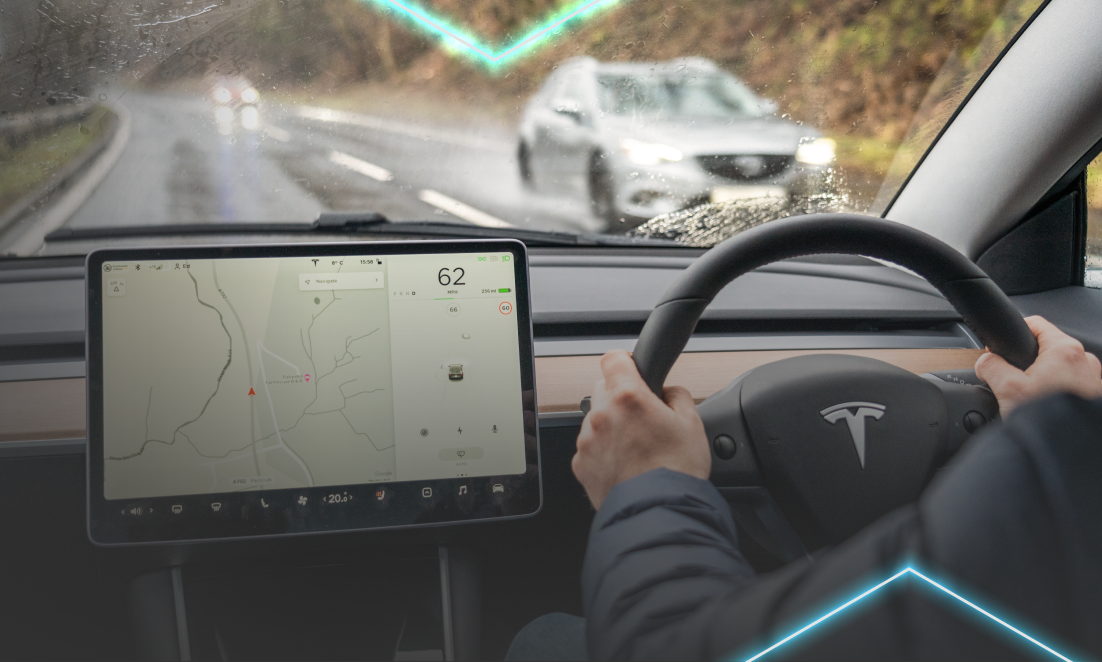In its Autumn Statement, the UK Government announced electric car owners will have to pay vehicle excise duty, or VED, from April 2025.
Electric cars are currently exempt from VED, which is better known as road tax.
Road tax rates vary according to emissions and the age of the car. Electric Vehicle (EV) owners will pay the lowest rate for new cars in the first year, which is £10, before paying the same rate as other vehicles. The flat rate of road tax is £165.
The new electric car road tax rate will apply to cars first registered after April 2017, which means it will be backdated to include millions of used EVs in the UK.
More expensive cars, with a list price of £40,000 or more, will also pay the £355 premium car tax rate. So, drivers with a new electric car above this price will have to pay £520 in road tax every year from the second to sixth year of registration.
Whether drivers pay road tax on a hybrid or plug-in hybrid car depends on the year of registration and its CO2 emissions. All cars registered between March 1, 2001 and March 31, 2017 with CO2 emissions less than 100g/km will continue to be exempt from road tax.
The chancellor, Jeremy Hunt, said the decision to impose road tax on EVs made “our motoring tax system fairer” given it was forecast “half of all new vehicles will be electric by 2025”.
What This Means for the UK Automotive Industry
The government believes the electric car road tax will have a “negligible impact on businesses in the automotive sector”.
“Leveraging VED on EVs is not expected to significantly impact purchasing decisions. The government remains committed to its net zero objectives and will continue to offer a range of incentives to encourage the uptake of EVs,” it said.
However, some automotive lobby groups have warned imposing road tax on EVs may put drivers off buying the more environmentally-friendly vehicles.
Ralph Palmer, electric fleet lead at clean transport campaign group Transport & Environment, said: “Not maintaining or widening the tax differential between electric and emitting cars is a massive own goal and risks stifling the progress the UK has made on electrification.”
Ian Plummer, commercial director at online marketplace Auto Trader Group, said: “The prospect of additional running costs will drive more would-be buyers away from EVs when other incentives are being scrapped and high energy bills are eroding the advantages of going electric,” as reported by Bloomberg.
Mike Hawes, chief executive of the Society of Motor Manufacturers and Traders, agreed the tax would “threaten both the new and second-hand EV markets”.
“The sting in the tail is the VED supplement which will unduly penalise these new, more expensive vehicle technologies,” he said in a statement.
Despite the introduction of road tax, some incentives remain for drivers to buy and use cleaner vehicles. EV drivers do not pay fuel duty, which is set to rise in March. The Chancellor also chose to keep the generous tax rates for EVs in company car schemes.
“Company car tax rates will remain lower for electric vehicles … and I will limit rate increases to 1% a year for three years from 2025,” Hunt said.
The RAC motoring group was confident the change to road tax would not mean a reduced demand for EVs.
"Vehicle excise duty rates are unlikely to be a defining reason for vehicle choice, so we don't expect this tax change to have much of an effect on dampening the demand for electric vehicles given the many other cost benefits of running one," Nicholas Lyes, RAC’s head of policy, said.
The Impact on the Automotive Engineering Talent Market
Experts are divided on the impact the road tax will have on the booming electric vehicle market.
But it seems unlikely to affect the growing trend of drivers choosing clean energy cars. In 2022, around one in five new cars bought in Britain were fully electric, according The Society of Motor Manufacturers and Traders, as reported by Car Magazine.
There were 56% more pure battery electric vehicles (BEV) registered in the first six months of the year, despite the overall market shrinking nearly 12%.
The UK Government has also set a target to phase out the sale of new petrol and diesel cars by the end of the decade, with some hybrids allowed until 2035.
While it remains to be seen what short-term impact (if any) the road tax has on buying habits, for recruiters there will be a continued focus on sourcing e-mobility talent.
The electric vehicle market is booming and major cities across the globe are planning to ban Combustion Engine Vehicles by as early as 2030. Given the need to invest in R&D and technology, significant growth is expected in the number of opportunities within the e-mobility sector, including in areas like R&D and Engineering, Operations and Sales and Marketing.
Europe’s Leading Recruiter for E-mobility Jobs
As automotive engineering recruitment experts, at Fields & Rudd we work alongside some of the world’s largest technological organisations to recruit for Automotive Engineering jobs in e-mobility.
We specialise in Automotive Engineering recruitment and executive search across Europe and beyond. We understand the present and future of the automotive industry for both employers and employees and will keep you up to date with the latest industry developments.
If you’re looking for industry insight or support in your UK job search, get in touch with our specialist team.

